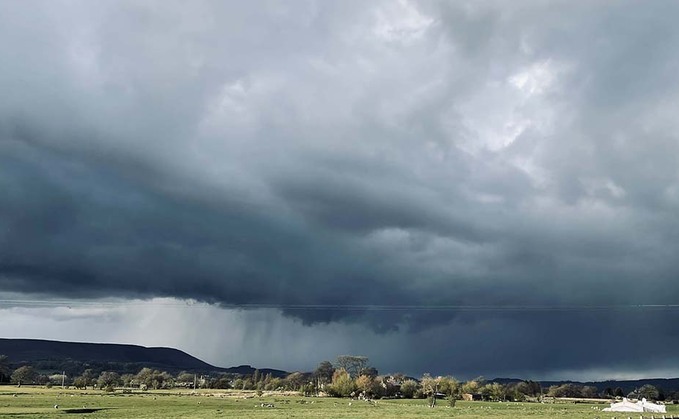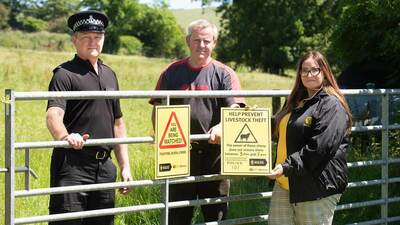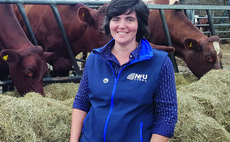
�������� have voiced the increasing psychological toll being victims of rural crime has had on their rural businesses and family farm life.
Norfolk farmer Jim Papworth had an £11,000 global positioning system (GPS) stolen from his Claas combine a day before harvest was due to start, which brought home how vulnerable farms are to organised crime.
Mr Papworth said: "It was clear that the thieves had done their homework and knew where the combine was parked.
"It is a constant battle to try and keep one step ahead of thieves who are very determined and quickly learn how to get round whatever security measures we do to protect our farm machinery and tools."
The theft of equipment can also hinder the efficiency of farming operations, as Lancashire sheep farmer Thomas Binns found out.
"In April, our specialist sheep handling system worth more than £10,000 was stolen from a field and with a large flock spread over 750 hectares, it was a vital piece of equipment for us," he said.
"Although the claim was settled in 24 hours there was a waiting list to get a replacement so we were without a system for three months, impacting the way we farm."
Theft of replacement equipment and vehicles is also commonplace, with Simon Clark, a Midlothian farmer, victim to two quad bike thefts within weeks of each other despite storing his replacement bike, fitted with a tracking system, in a different location with security chains.
"It was worrying to know that criminals are watching us and looking for a moment when our backs are turned - particularly for my wife and daughters," he said.
Denbighshire farmer Pearce Hughes, who was a victim of a night-time raid in May, added: "We have all been on edge since the incident, obsessively careful about locking up and keeping the farm as secure as we can.
"My father struggled to sleep in the nights following the incident, shaken by the idea of intruders on the property and the potential for repeat incidents."
Sheep farmer pilots scheme with Devon and Cornwall Police

Dartmoor sheep farmer Colin Abel, who loses 200 sheep a year to thieves, is part of a pilot scheme with Devon and Cornwall Police.
It provides contact details for local residents and visitors to report suspicious activities such as people rounding up sheep at night.
The initiative provides farmers with signs for field gates which tell the public when farmers are likely to move livestock, with a contact number to call if they see or hear animals being moved outside these hours.
The moor's unfenced roads and sparse population make it attractive to rustlers who have skills to round up sheep, transport them, and have a market for illegally slaughtered and butchered meat.
Mr Abel said: "Over the last few years, we have had regular thefts and are now losing about 200 sheep a year to rustlers. It is a huge problem for all the farmers who graze sheep on the moor as commoners.
"For small farms, the risk of having stock stolen is now making it too risky to graze sheep on the moor. Small farmers have been grazing sheep on Dartmoor for centuries as commoners, so the constant threat if theft is forcing an end to traditional farming life in West Devon."
Mr Abel said he was also closely following technological security developments such as tracking devices for livestock.



















